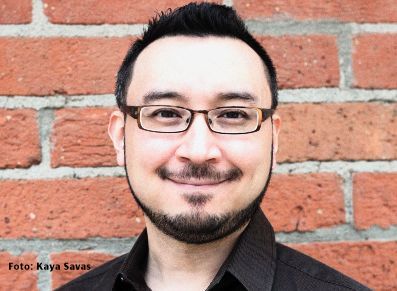
|
«My heart is really in the melodic writing» -Hi Edwin, Firstly, thank you so much for the opportunity to interview you, a composer we consider one of the brightest rising stars in today’s Hollywood film music world. We know you are a very humble person but we feel sincerely that you are destined for great things in the industry. -Let’s start by talking about your early beginnings in the music world in Vienna. Could you share with us what led to your first musical steps when you were a little boy in Vienna? At that time, did you have the sense that your future was destined to be related to music, considering your father worked as a tenor and assistant director at the Vienna State Opera, and your mother had a brief career as an operatic soprano? -My parents tell me that I was drawn to music at an early age, singing tunes I had heard on the radio or on a record or in a movie. Later on, I would play my father’s LP’s repeatedly, especially anything that had great tunes in it, ranging from Mozart’s The Magic Flute to Prokofiev’s Peter And The Wolf to ABBA’s Super Trouper to the Sherman Brothers’ Chitty Chitty Bang Bang to John Williams’s Star Wars. I did not know that I wanted (and needed) music to be my career until I was about 16 or 17, but I always knew that I loved music more than anything. I will always remember my mother getting really excited about a brilliant piece of music. She would say, “You HAVE to listen to this”, and she would always explain what made the piece so special. I learned from her that oftentimes, the accompaniment was as important as the melody. She used the hymn tune from the Jupiter movement from Holst’s The Planets to demonstrate the wonders of counterpoint and how satisfying it was to hear contrary motion in music: the melody line reaching upward while the bass was moving down. Wonderful stuff! -You were a member of the Vienna Choir Boys between the years 1985 and 1989, participating in world tours around the globe. What are your memories from that time, sharing stages with such musical legends as José Carreras, Alfredo Kraus, and Agnes Baltsa, and singing in more than 500 concerts and opera performances? -Your passion for music has always included film music, and you were a film music collector from a very early age. Could you share with us your preferences at that time, in terms of scores and the composers whose music you fell in love with during your childhood? -During the nineties, you scored several award-winning short films for the independent company, Magellan-Film, in Austria. What are your memories about these first steps into the film scoring universe? -It was an ideal situation, and a perfect breeding ground for creativity. All the folks associated with Magellan-Film were just so nice, supportive, and enthusiastic. I have to especially thank Michael Roscher here, who oversaw the organization with a wonderful can-do attitude. The first project I did with them was a fantasy short film about a guy who gets stuck on a cursed outdoors staircase. Each step has its own challenges, and each challenge gets more difficult. He needs the help of the townspeople but none of them will talk to him except for a little girl. We had a blast making the short. A surprising number of people loved the idea and volunteered. I wrote the score and performed it to picture on a KORG music workstation, multi-tracking myself. At the time, I had no technical means to sync the music software with the video, so the process was quite labor-intense, and I remember having to rewind tape a lot! Technically and artistically, the best of the Magellan shorts was probably Encounter In The Park, which we shot on a professional soundstage in front of a white backdrop. It’s an abstract story about a guy getting over a breakup with the help of a mysterious mentor. The score harkened back to the days of silent movies and was written exclusively for piano, with one cue that had some subtle synth overlays. -Eventually, you ended up in the USA, where you earned certificates in film scoring and screenwriting at UCLA. What can you share with us about those student times and about your first assignments, focusing on your first concert commission from the University of Ottawa and its choral director, Laurence Ewashko? The resulting piece, Consolatio, for symphony orchestra and choir, received a standing ovation at its premiere. Please, share with our readers your feelings at that emotional moment. -After literally dozens of short film scores, you met writer and director Temi Lopez, and you composed for him the score for the 2001 movie, Home: The Horror Story. Was this maybe your moment of truth to realize you were pointed in the right direction to become a film composer? -During your studies at UCLA Extension, you met director José Antonio W. Danner, and he hired you to score his ambitious comedy short, Wrong Hollywood Number (2003). For this project, you created a terrific, big Hollywood cinema tribute composition, recorded with the London Metropolitan Orchestra with the work of a legend like Dennis Sands mixing the score. From my subjective point of view, I knew you for the first time through this short film and sincerely was amazed by its music. What are your remembrances about the creation of this composition? -In 2004, you were accepted into the prestigious ASCAP TV & Film Scoring Workshop, and you even ended up participating in a recording session at 20th Century Fox’s Newman Scoring Stage with the Hollywood Studio Symphony Orchestra. Please, tell us about those moments of excitement and achievement in the career of a young composer. -My understanding is that many people apply for the workshop, so I was very lucky to get in, based on my submission which mostly consisted of Wrong Hollywood Number. Richard Bellis, Michael Todd, and Jennifer Harmon did a flawless job running the workshop. The orchestra session was fantastic, but to me, the most amazing moment during the entire workshop happened when we were taken for a quick tour through the archives of JoAnn Kane Music Service, which is the premiere music copying place for film music. I saw some scores and orchestral parts there for a project that I’m probably not allowed to mention publicly. What an incredible treasure trove for film music enthusiasts! -Please, could you share with us how you ended up working on the Azureus Rising project, and how was your collaboration with the makers to create such a powerful and thrilling score for this epic short film? -After this and working with Hollywood composers such as Paul Haslinger (Sleeper Cell, Into The Blue), Stephen Trask (Little Fockers), and John Ottman (The Losers, The Resident, Unknown, and Non-Stop) recently, and having received excellent reviews for your scores, Christmas With A Capital C, The Right To Love: An American Family, and Escape, how do you feel your career is evolving, and what are your hopes and expectations in today’s film music world? -A few years back, during 2009, you were commissioned an a cappella choir piece by Christopher McCafferty, which the Illumni Men’s Chorale premiered under the title, Winter Medley, with great success during that year’s holiday season. Is it very different to compose when the voice is the instrument and you don’t have any orchestral instruments to write for? How was your experience creating this piece? -I think that writing for voices comes to me naturally since I grew up singing in a choir. Singing a cappella piece requires a lot of concentration because you constantly have to listen to each other to get the intonation right and not inadvertently shift up or down during the performance. Winter Medley is challenging in that regard, especially the first movement, because it is quite atonal and requires a fair amount of rehearsal time to get right. Illumni really impressed me with their performances of the piece over the years, and I am so thankful for the commission. The third movement is a lullaby, the melody of which I had been carrying with me for several years prior to the commission. I am so thankful to Christopher McCafferty for giving me the opportunity to make good use of that melody. When they recorded the piece at Jack Straw Productions, with Sean Haley conducting, there was one take of the third movement where something magical happened. It came out perfectly, people were in tears, and the whole movement is just one take, with no edits. Everybody thanks their lucky stars when that happens. -Focusing on your most recent works, and having The Right To Love: An American Family and Escape reviewed here at BSOSpirit, for our readers to check out, what words would you use to define your style in order to convince new film music fans to get to know you and your music? As for having a distinct style: Several people have told me that they can tell my style apart from any other composer’s but I am unable to make that distinction myself, for reasons beyond my comprehension. Obviously, the music needs to feel right to me or else it would never leave my studio, so I guess my style is simply a matter of selection and a series of choices that is probably uniquely my own. Please, judge for yourself. -Being the composer of additional music on Non-Stop, working with John Ottman, could you share with our readers how a collaboration like this one is developed to combine both spirits and musical worlds into one structured and well-conceived score, without letting the styles clash, but being seamlessly combined to improve the final composition? -Which are your upcoming projects – the ones you could tell us about of course, we wouldn’t like to jinx anything 😉 – for the near future? -Thank you for knowing about my phobia of jinxing upcoming projects! Well, I can reveal that I am working on an indie horror movie for a wonderful director. I hope my music will make it to the finish line, and I really hope this movie will get distribution. I think it’s entertaining, and I’m having fun working on scary music, some of which is quite aggressive. -At this point, and having with this interview the opportunity to make you feel closer to the Spanish film music fans and our readers at BsoSpirit, and giving them the chance to know you better, we would like to ask you about some particular things: Which could you say are your favorite three scores of all time? –Brainstorm (James Horner), An American Tail (also Horner), Star Trek: The Motion Picture (Jerry Goldsmith). Wow, choosing those was difficult! So many great scores! -What are your favorite film composers of the past (Golden & Silver Ages) and the composers you admire the most nowadays? -Past composers: Erich Wolfgang Korngold, Miklós Rózsa, Bernard Herrmann, Elmer Bernstein, Maurice Jarre, Leonard Rosenman, Alex North, and especially Jerry Goldsmith. Current composers: Are John Williams, Charles Fox, and James Horner current? I hope they are!. -Of course they are, we agree 100%. -Which do you feel are the most iconic and significant compositions that have inspired the film music industry during the past few decades, from your personal point of view? -Pretty much anything by Bernard Herrmann and Hans Zimmer (especially Inception which seems to be in every action movie temp score), Elfman’s Edward Scissorhands, Thomas Newman’s American Beauty which changed the way comedies are scored. -And finally, which dream movie project from the past would you have loved to score, and which one do you hope to score some day in the future? -For the past dream project, I would have to go with The Lord Of The Rings: The Return Of The King, which has a beautiful score by Howard Shore. It’s a flawless film as far as I’m concerned, with heart-felt emotions, super-high stakes, and epic set pieces. I think that’s the kind of movie every film composer wants to tackle. As for future projects: I hope that my friend José Antonio will get to direct the big, epic movie he so deserves: something where money is not an issue, and where he can tell his extremely well-crafted stories on a large canvas that will wow audiences. I’d love to score that! Oh, and working with Steven Spielberg in some capacity has always been a dream of mine. He has worked with so many superstar composers, as well as up-and-coming talent… His musical taste is impeccable. -Thank you so much, Edwin, for your kindness and bright spirit! We wish you all the very best. I have to say, Asier, that your questions were the best-prepared I have ever had the pleasure to answer. You really did your homework, and I am truly thrilled that you have been enjoying my music. I am planning to do my best to not disappoint in the future. Many thanks for this opportunity to talk with you! -An honor, pal, likewise. |
Author BIO: Born into a musical family, his father, Anton, worked as a tenor and assistant director at the Vienna State Opera while his mother had a brief career as an operatic soprano before switching careers to work for the United Nations, Wendler attended the Vienna Choir Boys during his childhood, participating in four tours around the globe, singing in more than 500 concerts and opera performances, sharing stages with José Carreras, Agnes Baltsa, or Alfredo Kraus, among other great artists and performers, and working with conductors such as Colin Davis and Horst Stein. From 1996 until 1998, Wendler wrote, directed, and scored several award-winning short films for the Austrian independent film company, Magellan-Film, earning certificates in film scoring and screenwriting from UCLA Extension in 1999. His first concert commission arrived that same year from the University of Ottawa and its choral director, Laurence Ewashko. The resulting piece, Consolatio, for choir and symphony orchestra, received a standing ovation at its premiere at St. Joseph’s Church, Ottawa. After composing music for dozens of short films, he scored his first feature film when writer/director Temi Lopez hired him to score his 2001 movie, Home – The Horror Story. In 2003, Wendler scored José Antonio W. Danner’s ambitious comedy short film, Wrong Hollywood Number with the London Metropolitan Orchestra, legendary recording engineer Mike Ross-Trevor, and Academy Award-nominated scoring mixer Dennis S. Sands. In 2004, Edwin was accepted into the prestigious ASCAP Film Scoring Workshop, which concluded with a recording session at 20th Century Fox’s Newman Scoring Stage, with famed scoring mixer Armin Steiner and the Hollywood Studio Symphony Orchestra. In November 2009, artistic director and conductor Christopher McCafferty commissioned a piece for a cappella choir for The Illumni Men’s Chorale premiered the resulting Winter Medley with great success. Edwin has collaborated along the years with composers such as Paul Haslinger (Into The Blue), Stephen Trask (Little Fockers), or John Ottman (The Losers, The Resident, Unknown, Non-Stop, composing additional music for this film, or the 2014 summer blockbuster X-Men Days Of Future Past. Also in 2014, Mr. Wendler’s score for the documentary, The Right to Love: An American Family, was nominated for a GoldSpirit Award. We can find as well other important compositions in Mr. Wendler’s career: Christmas with a Capital C (2010), The Mark (2012), Escape (2012), or The Mark Redemption (2013). 
Website -Edwin Wendler: More excerpts from Escape: https://soundcloud.com/edwinwendler/escape-original-score-excerpts
|


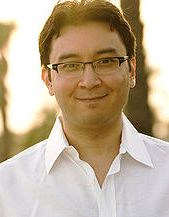 -Thank you so much, Asier! You have been very kind in your reviews of my work, especially the pieces which one might describe as “heart-felt,” the moments when I hope that I was able to capture an honest emotion in my music. You always hope it translates but you can’t be certain because music is so subjective.
-Thank you so much, Asier! You have been very kind in your reviews of my work, especially the pieces which one might describe as “heart-felt,” the moments when I hope that I was able to capture an honest emotion in my music. You always hope it translates but you can’t be certain because music is so subjective.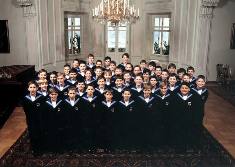 -I actually did not want to join the Vienna Choir Boys. I was very close to my parents and didn’t want to leave for a boarding school. My mother and her father thought it would be a good idea for me to join but I had to be dragged there. It took many weeks for me to adjust to a point where I wasn’t crying all the time, hiding in a bathroom stall. Even after that, I never felt comfortable there. It just didn’t seem right to me to separate young children from parents for many months at a time. If you must do that sort of thing, it better be for a really good reason, and I don’t know if singing in a choir qualifies unless the kids truly want to make that kind of a commitment. From a musical standpoint, though, those years were my most formative ones. We obviously got to work with some of the most talented musicians in the world. I remember a few of them being exceptionally nice to us: One day, we arrived in our dressing room at the Vienna State Opera to find delicious chocolate candy there, next to each of our costumes. It came from Alfredo Kraus, who was one of the kindest people I ever met, and a fantastic singer with perfect technique and expression. I remember observing a lot during those years: the way conductors worked with us, which ones we liked and which ones we couldn’t stand and why, how much time it took to rehearse difficult music and what made music difficult to read or perform, etc. I learned a lot of really valuable lessons during that time.
-I actually did not want to join the Vienna Choir Boys. I was very close to my parents and didn’t want to leave for a boarding school. My mother and her father thought it would be a good idea for me to join but I had to be dragged there. It took many weeks for me to adjust to a point where I wasn’t crying all the time, hiding in a bathroom stall. Even after that, I never felt comfortable there. It just didn’t seem right to me to separate young children from parents for many months at a time. If you must do that sort of thing, it better be for a really good reason, and I don’t know if singing in a choir qualifies unless the kids truly want to make that kind of a commitment. From a musical standpoint, though, those years were my most formative ones. We obviously got to work with some of the most talented musicians in the world. I remember a few of them being exceptionally nice to us: One day, we arrived in our dressing room at the Vienna State Opera to find delicious chocolate candy there, next to each of our costumes. It came from Alfredo Kraus, who was one of the kindest people I ever met, and a fantastic singer with perfect technique and expression. I remember observing a lot during those years: the way conductors worked with us, which ones we liked and which ones we couldn’t stand and why, how much time it took to rehearse difficult music and what made music difficult to read or perform, etc. I learned a lot of really valuable lessons during that time.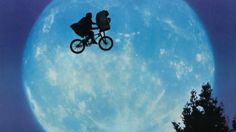 -I loved John Williams’s music, especially E.T., which always had sort of a mystical quality to me. Superman: The Movie could always put me in a good mood. That main theme is just so exuberant and optimistic; it’s absolutely impossible to listen to with indifference. James Horner’s scores for Krull and An American Tail had a big influence on me. Star Trek: The Motion Picture, Poltergeist, and Gremlins were the first Jerry Goldsmith scores I remember hearing and instantly loving. My other childhood favorites included Tron by Wendy Carlos, Iceman by Bruce Smeaton, The Dark Crystal by Trevor Jones, and Return To Oz by David Shire. It’s somewhat ironic that the kind of film music, which drew me to the genre, is no longer wanted, for the most part. I am really enjoying working on dark or minimal scores, or even scores that are more similar to sound design than music, but my heart is really in the melodic writing.
-I loved John Williams’s music, especially E.T., which always had sort of a mystical quality to me. Superman: The Movie could always put me in a good mood. That main theme is just so exuberant and optimistic; it’s absolutely impossible to listen to with indifference. James Horner’s scores for Krull and An American Tail had a big influence on me. Star Trek: The Motion Picture, Poltergeist, and Gremlins were the first Jerry Goldsmith scores I remember hearing and instantly loving. My other childhood favorites included Tron by Wendy Carlos, Iceman by Bruce Smeaton, The Dark Crystal by Trevor Jones, and Return To Oz by David Shire. It’s somewhat ironic that the kind of film music, which drew me to the genre, is no longer wanted, for the most part. I am really enjoying working on dark or minimal scores, or even scores that are more similar to sound design than music, but my heart is really in the melodic writing.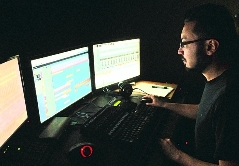 -In Vienna, I had spent a few years studying things I didn’t really like, so those Certificate Programs at UCLA Extension felt like a vacation to me. The programs were challenging, in terms of meeting deadlines (especially since I was doing two programs simultaneously, and I was the only non-English native speaker in my screenwriting classes) but the teachers were wonderful and very encouraging, especially Tara Ison, Gerald Fried, and Dennis Dreith. Laurence Ewashko had been one of our conductors at the Vienna Choir Boys, and he remembered that I had wanted to become a composer. He called me at UCLA and asked if I wanted to write a cantata for choir and large orchestra, which was a risky move on his part because I had never written anything of that scale. I felt immensely inspired by his trust, and eager to deliver something memorable that was easy enough for student musicians to play and sing, but challenging enough to make it interesting for them. They really rose to the challenge, and I was especially touched that so many of them asked for my autograph after the performance. My friend, José Antonio W. Danner was there, and in tears. I’ll never forget it.
-In Vienna, I had spent a few years studying things I didn’t really like, so those Certificate Programs at UCLA Extension felt like a vacation to me. The programs were challenging, in terms of meeting deadlines (especially since I was doing two programs simultaneously, and I was the only non-English native speaker in my screenwriting classes) but the teachers were wonderful and very encouraging, especially Tara Ison, Gerald Fried, and Dennis Dreith. Laurence Ewashko had been one of our conductors at the Vienna Choir Boys, and he remembered that I had wanted to become a composer. He called me at UCLA and asked if I wanted to write a cantata for choir and large orchestra, which was a risky move on his part because I had never written anything of that scale. I felt immensely inspired by his trust, and eager to deliver something memorable that was easy enough for student musicians to play and sing, but challenging enough to make it interesting for them. They really rose to the challenge, and I was especially touched that so many of them asked for my autograph after the performance. My friend, José Antonio W. Danner was there, and in tears. I’ll never forget it.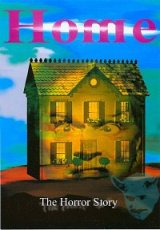 -Yes, definitely. It was a bit daunting at first to look at the amount of music that needed to be composed but I just had a lot of fun writing whacky stuff, and piece by piece, we ended up with something that was appropriately over-the-top. I don’t think I’ve ever been asked to write that kind of in-your-face music ever since. Most projects require the music to stay out of the way most of the time, but for Temi, nothing was too crazy, and I loved it!
-Yes, definitely. It was a bit daunting at first to look at the amount of music that needed to be composed but I just had a lot of fun writing whacky stuff, and piece by piece, we ended up with something that was appropriately over-the-top. I don’t think I’ve ever been asked to write that kind of in-your-face music ever since. Most projects require the music to stay out of the way most of the time, but for Temi, nothing was too crazy, and I loved it!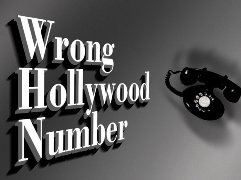 -Thank you so very much! José Antonio approached me in early 2002 with this idea to make a short film that went against the grittiness of the usual indie short films about gangsters and suicidal drug addicts. He wanted something fun, uplifting, and heart-felt. He wrote the screenplay with my music in mind, which was an immense honor, and he promised that there would be an orchestra. Getting there turned out to be a huge challenge, the details of which could easily fill a book. José Antonio saved all his money while living in his car. I got stuck in Europe because my visa renewal took much longer than expected. I worked at a post office in Vienna to help raise the funds for the music mix. We had tremendous help along the way, specifically from LMO’s contractor and manager, Andy Brown, recording engineer Mike Ross-Trevor, mastering engineer Patricia Sullivan, and the incomparable Dennis Sands. Mike had recorded and mixed several Goldsmith and Broughton scores on the very stage where we recorded Wrong Hollywood Number. The orchestra loved the music and reacted with applause. The word “magical” doesn’t even begin to describe the experience.
-Thank you so very much! José Antonio approached me in early 2002 with this idea to make a short film that went against the grittiness of the usual indie short films about gangsters and suicidal drug addicts. He wanted something fun, uplifting, and heart-felt. He wrote the screenplay with my music in mind, which was an immense honor, and he promised that there would be an orchestra. Getting there turned out to be a huge challenge, the details of which could easily fill a book. José Antonio saved all his money while living in his car. I got stuck in Europe because my visa renewal took much longer than expected. I worked at a post office in Vienna to help raise the funds for the music mix. We had tremendous help along the way, specifically from LMO’s contractor and manager, Andy Brown, recording engineer Mike Ross-Trevor, mastering engineer Patricia Sullivan, and the incomparable Dennis Sands. Mike had recorded and mixed several Goldsmith and Broughton scores on the very stage where we recorded Wrong Hollywood Number. The orchestra loved the music and reacted with applause. The word “magical” doesn’t even begin to describe the experience. -I was looking through Facebook pages about visual effects because I had always had a fascination with them, and I saw a profile picture for a man named David Weinstein, which looked like a monster but had a lot of character to it. I wanted to connect with David because that character rendering looked so intriguing. I asked him if he had any projects that I could maybe score. My message happened to arrive exactly when David was, in fact, looking for a composer for Azureus Rising. We met at a café where he showed me an early sequence of Azureus running and jumping, as well as some concept drawings. I was hooked and felt inspired to write a theme, which ended up being the main theme for the project. I just loved the way the action sequences were conceptualized and directed, and all the cool designs, with an incredible amount of detail, even in the backgrounds. It was a fascinating world that I really wanted to be part of, and I am so glad that the reactions to the music have been very positive. I recently had the honor to work with David again on a wonderful short film project, which will hopefully be released very soon.
-I was looking through Facebook pages about visual effects because I had always had a fascination with them, and I saw a profile picture for a man named David Weinstein, which looked like a monster but had a lot of character to it. I wanted to connect with David because that character rendering looked so intriguing. I asked him if he had any projects that I could maybe score. My message happened to arrive exactly when David was, in fact, looking for a composer for Azureus Rising. We met at a café where he showed me an early sequence of Azureus running and jumping, as well as some concept drawings. I was hooked and felt inspired to write a theme, which ended up being the main theme for the project. I just loved the way the action sequences were conceptualized and directed, and all the cool designs, with an incredible amount of detail, even in the backgrounds. It was a fascinating world that I really wanted to be part of, and I am so glad that the reactions to the music have been very positive. I recently had the honor to work with David again on a wonderful short film project, which will hopefully be released very soon. -Every project has its challenges. Sometimes they may feel overwhelming, but in almost all cases, they are really worth embracing. I am very grateful for the work I have gotten and the positive reviews, even the negative reviews. You have to develop a slightly new skill set for each project, and that’s what keeps the experience fresh. In this industry, so many people promise things but almost nobody follows through with anything, so I have long abandoned any expectations for myself, but I do hope that my abilities as a composer and as a collaborator will enable me to continually exceed other people’s expectations because I thrive on the enthusiasm I get from my clients, no matter what the project is or what challenges it may present.
-Every project has its challenges. Sometimes they may feel overwhelming, but in almost all cases, they are really worth embracing. I am very grateful for the work I have gotten and the positive reviews, even the negative reviews. You have to develop a slightly new skill set for each project, and that’s what keeps the experience fresh. In this industry, so many people promise things but almost nobody follows through with anything, so I have long abandoned any expectations for myself, but I do hope that my abilities as a composer and as a collaborator will enable me to continually exceed other people’s expectations because I thrive on the enthusiasm I get from my clients, no matter what the project is or what challenges it may present.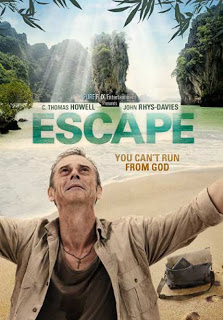 -I was really moved by your reviews. Thank you! As a film music fan and collector myself, I aspire to deliver the kind of quality that fans admire in their soundtrack collection. Goal number one is always to make the client happy, and sometimes, the client just doesn’t like film music that much, but the “wow” factor, from a film music fan’s perspective, is always something I have at least in the back of my mind while working. Oftentimes, serviceable ideas get abandoned because I say to myself: I can do better.
-I was really moved by your reviews. Thank you! As a film music fan and collector myself, I aspire to deliver the kind of quality that fans admire in their soundtrack collection. Goal number one is always to make the client happy, and sometimes, the client just doesn’t like film music that much, but the “wow” factor, from a film music fan’s perspective, is always something I have at least in the back of my mind while working. Oftentimes, serviceable ideas get abandoned because I say to myself: I can do better. 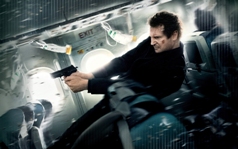 -In the case of Non-Stop, John called early on because he saw a conflict in his schedule but really wanted to maintain a good working relationship with director Jaume Collet-Serra and producer Joel Silver. X-Men: Days Of Future Past required John’s full attention as an editor during production, but he did have the time to clearly define the main theme and the tone of the score for Non-Stop. I listened to all of his work very carefully and watched it in context. It must have been extremely difficult for John to give away some control because I know him to be very meticulous and detail-oriented in the best kind of way. My job was to take his well-outlined concepts and develop them for specific needs and specific scenes. I also was asked to address musical changes when we got new versions of reels or new notes about cues. John’s guidance was tremendously helpful during the process. He is just really fun to work with. I don’t remember any clashes of styles because this really felt like a team effort, and my role was to make sure that John felt comfortable with the music so we could present it to the client.
-In the case of Non-Stop, John called early on because he saw a conflict in his schedule but really wanted to maintain a good working relationship with director Jaume Collet-Serra and producer Joel Silver. X-Men: Days Of Future Past required John’s full attention as an editor during production, but he did have the time to clearly define the main theme and the tone of the score for Non-Stop. I listened to all of his work very carefully and watched it in context. It must have been extremely difficult for John to give away some control because I know him to be very meticulous and detail-oriented in the best kind of way. My job was to take his well-outlined concepts and develop them for specific needs and specific scenes. I also was asked to address musical changes when we got new versions of reels or new notes about cues. John’s guidance was tremendously helpful during the process. He is just really fun to work with. I don’t remember any clashes of styles because this really felt like a team effort, and my role was to make sure that John felt comfortable with the music so we could present it to the client.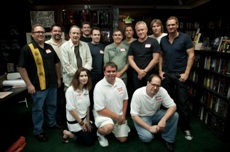 -I also love Danny Elfman, Thomas Newman, John Powell, Philippe Rombi, Philippe Sarde, and Philip Glass. Roque Baños is doing some great work as well. My partner, Peter Hackman, is putting on an annual event, called Fans Of Film Music, where he gets an incredible number of current composers to attend, talk about their work, and meet the fans. It’s been a wonderful opportunity for us to simply say “hi” and “thank you” for their stellar work.
-I also love Danny Elfman, Thomas Newman, John Powell, Philippe Rombi, Philippe Sarde, and Philip Glass. Roque Baños is doing some great work as well. My partner, Peter Hackman, is putting on an annual event, called Fans Of Film Music, where he gets an incredible number of current composers to attend, talk about their work, and meet the fans. It’s been a wonderful opportunity for us to simply say “hi” and “thank you” for their stellar work.
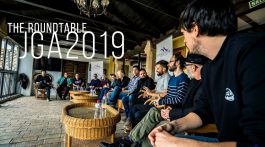
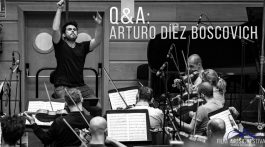
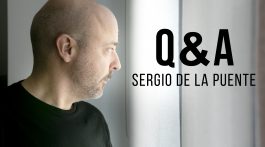
No hay comentarios